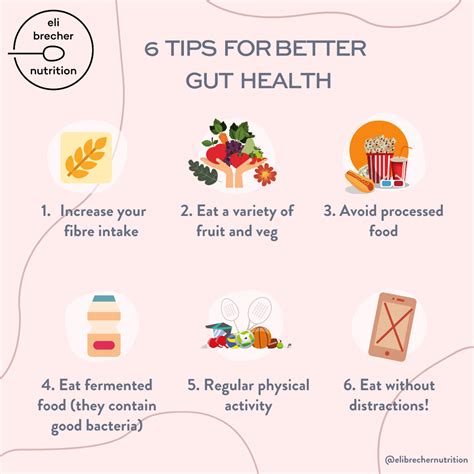How to Improve Gut Health: A Comprehensive Guide
Your gut health is crucial for overall well-being. A thriving gut microbiome contributes to better digestion, immunity, mental clarity, and even weight management. But modern lifestyles often negatively impact this delicate ecosystem. This comprehensive guide explores practical steps to improve your gut health and unlock the benefits of a happy gut.
Understanding Your Gut Microbiome
Before diving into solutions, it's essential to understand what constitutes a healthy gut. Your gut microbiome is a complex community of trillions of bacteria, fungi, and other microorganisms living in your digestive tract. A balanced microbiome is characterized by a diverse range of beneficial bacteria, which outnumber harmful ones. This balance is vital for proper digestion, nutrient absorption, and immune function.
Signs of Poor Gut Health:
Several symptoms could indicate an imbalance in your gut microbiome:
- Digestive issues: Bloating, gas, constipation, diarrhea, abdominal pain.
- Immune problems: Frequent infections, allergies, autoimmune disorders.
- Skin issues: Acne, eczema, psoriasis.
- Mental health concerns: Anxiety, depression.
- Fatigue and low energy: Persistent tiredness and lack of vitality.
Proven Strategies to Boost Your Gut Health
Improving your gut health is a journey, not a destination. Consistency is key. Here's a breakdown of effective strategies:
1. Prioritize a Diverse Diet Rich in Fiber
Fiber is the fuel for your gut bacteria. A diet lacking in fiber starves beneficial bacteria, leading to an imbalance. Focus on incorporating a wide variety of fruits, vegetables, whole grains, and legumes.
- Prebiotics: These are non-digestible food ingredients that act as food for your beneficial gut bacteria. Examples include: bananas, onions, garlic, asparagus, and oats.
- Probiotics: These are live microorganisms that, when consumed in adequate amounts, confer a health benefit. They are found in fermented foods like yogurt, kefir, sauerkraut, and kimchi.
2. Manage Stress Levels
Chronic stress significantly impacts gut health. Stress hormones can disrupt the balance of your gut microbiome, increasing inflammation and potentially leading to digestive problems. Practicing stress-reducing techniques like yoga, meditation, and deep breathing can significantly benefit your gut.
3. Get Enough Sleep
Sleep deprivation negatively impacts gut health. Aim for 7-9 hours of quality sleep per night to allow your body to repair and restore, including your gut microbiome.
4. Stay Hydrated
Adequate hydration is vital for overall health, including gut health. Water helps regulate bowel movements, preventing constipation and promoting a healthy gut environment. Aim for at least eight glasses of water per day.
5. Limit Processed Foods, Sugar, and Alcohol
Processed foods, excessive sugar, and alcohol can disrupt the delicate balance of your gut microbiome. These foods often lack essential nutrients and can promote the growth of harmful bacteria. Moderation is key.
6. Consider Prebiotic and Probiotic Supplements
While a diverse diet is the best approach, supplements can be helpful, particularly if you struggle to get enough prebiotics and probiotics through food alone. Always consult with a healthcare professional before starting any supplement regimen.
7. Exercise Regularly
Physical activity benefits gut health in numerous ways. Exercise helps regulate bowel movements, reduces stress, and improves overall well-being. Aim for at least 30 minutes of moderate-intensity exercise most days of the week.
Monitoring Your Progress
Tracking your progress is crucial for maintaining motivation and adjusting your approach. Pay attention to changes in your digestive symptoms, energy levels, and overall well-being. Keeping a food diary can also be helpful in identifying potential triggers and patterns.
By following these strategies, you'll be well on your way to a healthier, happier gut, and improved overall health. Remember consistency is key, and seeking professional guidance when needed is always recommended.
